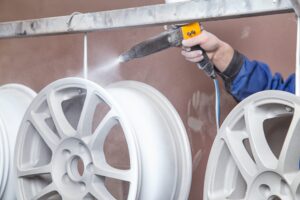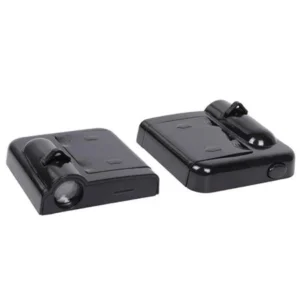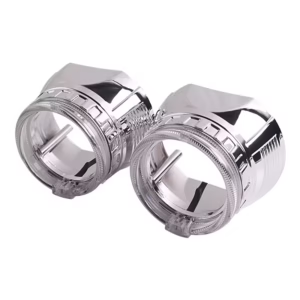Introduction
In the realm of vehicle maintenance, protecting the glass surfaces is often overlooked despite being crucial for safety and aesthetics. Glass coating offers a revolutionary solution that enhances visibility, protects against damage, and simplifies maintenance. This comprehensive guide explores the benefits of glass coating, its application process, and tips for maintaining clear and protected glass surfaces on your vehicle.
What is Glass Coating?
Glass coating is a liquid polymer that, when applied to the glass surfaces of a vehicle, forms a protective layer. This coating creates a hydrophobic (water-repellent) surface, which enhances visibility, prevents damage from environmental contaminants, and makes cleaning easier.
Types of Glass Coatings
There are several types of glass coatings available, each with unique properties:
- Hydrophobic Coatings: These repel water, causing it to bead up and roll off the surface, improving visibility in rain.
- Anti-Fog Coatings: These prevent fogging on interior glass surfaces, enhancing safety and comfort.
- UV-Protection Coatings: These shield the glass from UV rays, preventing damage and reducing heat buildup inside the vehicle.
Benefits of Glass Coating
The advantages of glass coating are numerous:
- Enhanced Visibility: Hydrophobic properties ensure water beads off, providing clearer vision during rain.
- Protection: Coatings protect against UV rays, bird droppings, sap, and other contaminants.
- Ease of Maintenance: Treated surfaces are easier to clean and maintain, as dirt and grime do not adhere as strongly.
- Aesthetic Enhancement: Coatings provide a clear, polished look, maintaining the glass’s pristine appearance.
How Glass Coating Enhances Safety
One of the primary benefits of glass coating is improved safety. By repelling water and preventing fogging, glass coatings enhance visibility in adverse weather conditions, reducing the risk of accidents. Additionally, UV-protection coatings reduce glare and eye strain, further contributing to safer driving.
Comparing Glass Coating to Traditional Methods
When comparing glass coating to traditional methods like regular cleaning and waxing, several key differences emerge:
- Durability: Glass coatings last much longer than traditional waxes and require less frequent application.
- Protection Levels: Coatings offer superior protection against a wider range of environmental hazards.
- Cost: While more expensive upfront, the long-term benefits and reduced need for frequent maintenance make glass coatings cost-effective.
- Maintenance: Glass coatings simplify cleaning, reducing the time and effort required to maintain clear glass surfaces.
Preparing Your Vehicle for Glass Coating
Proper preparation is crucial for the success of glass coating application. This involves several steps:
- Cleaning: Thoroughly wash the glass to remove all dirt and grime.
- Decontamination: Use a clay bar or glass cleaner to remove embedded contaminants from the surface.
- Surface Preparation: Ensure surfaces are dry and free from any contaminants that might interfere with the coating’s adhesion.
Application Process
The application of glass coating can be done professionally or as a DIY project. Here is a step-by-step guide for both methods:
Professional Application
- Inspection: A professional will inspect the glass for imperfections.
- Preparation: The glass is cleaned and decontaminated.
- Application: The coating is applied evenly in a controlled environment to ensure optimal conditions.
- Curing: The coating is left to cure for the recommended time, usually 24-48 hours.
DIY Application
- Preparation: Follow the same preparation steps as for professional application.
- Application: Apply the coating using the provided applicator pad, ensuring even coverage.
- Buffing: After a specified time, buff the surface with a microfiber cloth to remove excess coating.
- Curing: Allow the coating to cure as per the manufacturer’s instructions.
Tools and Materials Needed
For a successful glass coating application, you will need:
- High-quality glass coating product
- Applicator pads
- Microfiber towels
- Glass cleaner
- Clay bar
Curing Time and Conditions
The curing time for glass coating varies depending on the product and environmental conditions. Optimal curing conditions include a temperature range of 50-70°F (10-21°C) and low humidity. During the curing period, avoid exposing the glass to water, dust, or other contaminants.
Maintenance of Glass Coating
Maintaining a coated glass surface involves regular, gentle cleaning and avoiding harsh chemicals. Use a pH-neutral glass cleaner and soft cloths to prevent damage to the coating. Avoid automatic car washes that use abrasive brushes.
Common Mistakes to Avoid
To ensure the longevity and effectiveness of your glass coating, avoid these common mistakes:
- Applying the coating on a dirty or contaminated surface
- Skipping the decontamination step
- Using abrasive cleaners or tools during maintenance
- Ignoring the manufacturer’s instructions for curing time and conditions
Myths and Misconceptions
Glass coating is often surrounded by myths and misconceptions. Some common ones include:
- Myth: Glass coating makes the glass scratch-proof.
- Fact: While it offers excellent protection, it is not entirely scratch-proof.
- Myth: Once applied, no further maintenance is needed.
- Fact: Regular cleaning is essential to preserve the coating’s effectiveness.
- Myth: Glass coating is a one-time application.
- Fact: Although long-lasting, it may require reapplication after several years.
Cost Analysis
The cost of glass coating can vary widely based on factors such as the quality of the product, the size of the vehicle, and whether the application is professional or DIY. Professional applications can range from $100 to $300, while DIY kits are typically between Kshs. 2000 and Kshs. 7000.
DIY vs. Professional Application
Choosing between DIY and professional glass coating depends on several factors:
- Skill Level: Professional application ensures expert results, while DIY requires careful attention to detail.
- Cost: DIY is more affordable but may lack the durability and finish of a professional job.
- Time: Professional application is quicker, with the entire process handled by experts.
Glass Coating for Different Vehicles
Glass coatings are beneficial for a variety of vehicles:
- Cars: Improves visibility and protection against environmental hazards.
- Trucks: Enhances durability and reduces maintenance for larger glass surfaces.
- Motorcycles: Provides clear vision and protection against the elements.
- Boats: Shields against saltwater damage and improves clarity.
- Aircraft: Reduces maintenance and improves safety through better visibility.
Environmental Impact
Glass coatings are generally considered eco-friendly. They reduce the need for frequent washing with harsh chemicals, thereby minimizing environmental impact. Additionally, the longevity of the coatings means less frequent reapplications, further reducing waste.
Frequently Asked Questions
How long does glass coating last?
Professional-grade coatings can last up to two years, while DIY options typically last 6-12 months.
Can glass coating be applied to all glass surfaces?
Yes, glass coating can be applied to windshields, windows, mirrors, and sunroofs.
Does glass coating prevent scratches?
It helps protect against minor scratches but is not entirely scratch-proof.
Can I apply glass coating myself?
Yes, there are DIY kits available, but professional application ensures optimal results.
Is glass coating worth the cost?
For most vehicle owners, the protection and safety benefits justify the initial investment.
What should I avoid after applying glass coating?
Avoid using harsh chemicals and abrasive tools on coated glass surfaces.
Real-Life Testimonials
Many vehicle owners have experienced the transformative benefits of glass coating. Lisa, a frequent traveler, shares, “After applying glass coating, driving in the rain has become much safer and more comfortable.” Mark adds, “The UV protection is fantastic! My car’s interior stays cooler, and the glass looks clear and pristine.”
Conclusion
Glass coating offers a remarkable solution for enhancing the safety and maintenance of your vehicle. Whether you choose a professional application or a DIY approach, understanding the process and benefits of glass coating will help you make an informed decision and keep your vehicle’s glass surfaces looking their best for years to come.




